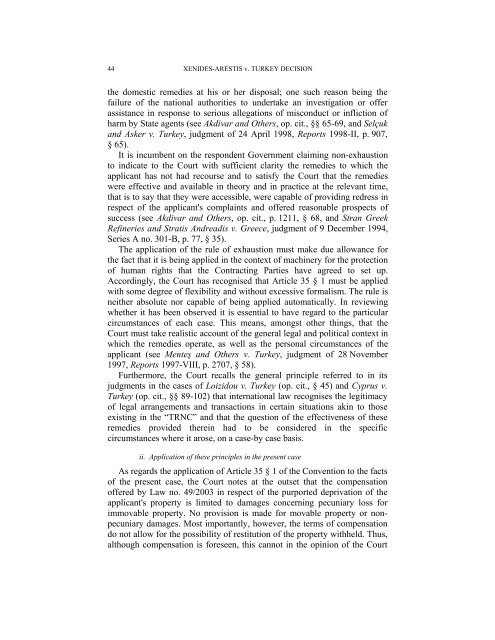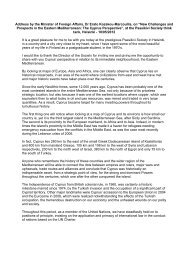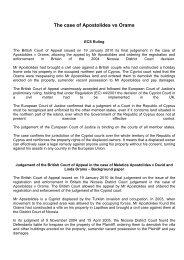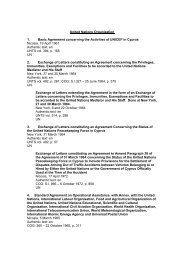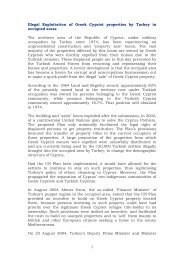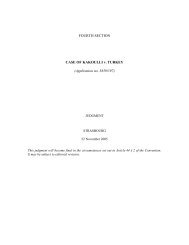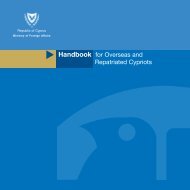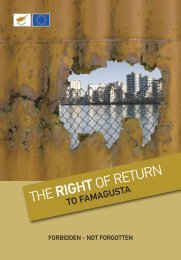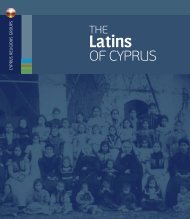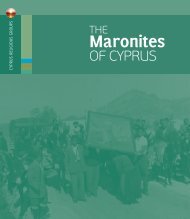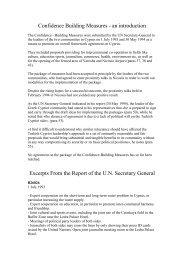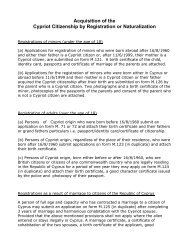Myra Xenides- Arestis v. Turkey
Myra Xenides- Arestis v. Turkey
Myra Xenides- Arestis v. Turkey
You also want an ePaper? Increase the reach of your titles
YUMPU automatically turns print PDFs into web optimized ePapers that Google loves.
44 XENIDES-ARESTIS v. TURKEY DECISIONthe domestic remedies at his or her disposal; one such reason being thefailure of the national authorities to undertake an investigation or offerassistance in response to serious allegations of misconduct or infliction ofharm by State agents (see Akdivar and Others, op. cit., §§ 65-69, and Selçukand Asker v. <strong>Turkey</strong>, judgment of 24 April 1998, Reports 1998-II, p. 907,§ 65).It is incumbent on the respondent Government claiming non-exhaustionto indicate to the Court with sufficient clarity the remedies to which theapplicant has not had recourse and to satisfy the Court that the remedieswere effective and available in theory and in practice at the relevant time,that is to say that they were accessible, were capable of providing redress inrespect of the applicant's complaints and offered reasonable prospects ofsuccess (see Akdivar and Others, op. cit., p. 1211, § 68, and Stran GreekRefineries and Stratis Andreadis v. Greece, judgment of 9 December 1994,Series A no. 301-B, p. 77, § 35).The application of the rule of exhaustion must make due allowance forthe fact that it is being applied in the context of machinery for the protectionof human rights that the Contracting Parties have agreed to set up.Accordingly, the Court has recognised that Article 35 § 1 must be appliedwith some degree of flexibility and without excessive formalism. The rule isneither absolute nor capable of being applied automatically. In reviewingwhether it has been observed it is essential to have regard to the particularcircumstances of each case. This means, amongst other things, that theCourt must take realistic account of the general legal and political context inwhich the remedies operate, as well as the personal circumstances of theapplicant (see Menteş and Others v. <strong>Turkey</strong>, judgment of 28 November1997, Reports 1997-VIII, p. 2707, § 58).Furthermore, the Court recalls the general principle referred to in itsjudgments in the cases of Loizidou v. <strong>Turkey</strong> (op. cit., § 45) and Cyprus v.<strong>Turkey</strong> (op. cit., §§ 89-102) that international law recognises the legitimacyof legal arrangements and transactions in certain situations akin to thoseexisting in the “TRNC” and that the question of the effectiveness of theseremedies provided therein had to be considered in the specificcircumstances where it arose, on a case-by case basis.ii. Application of these principles in the present caseAs regards the application of Article 35 § 1 of the Convention to the factsof the present case, the Court notes at the outset that the compensationoffered by Law no. 49/2003 in respect of the purported deprivation of theapplicant's property is limited to damages concerning pecuniary loss forimmovable property. No provision is made for movable property or nonpecuniarydamages. Most importantly, however, the terms of compensationdo not allow for the possibility of restitution of the property withheld. Thus,although compensation is foreseen, this cannot in the opinion of the Court


